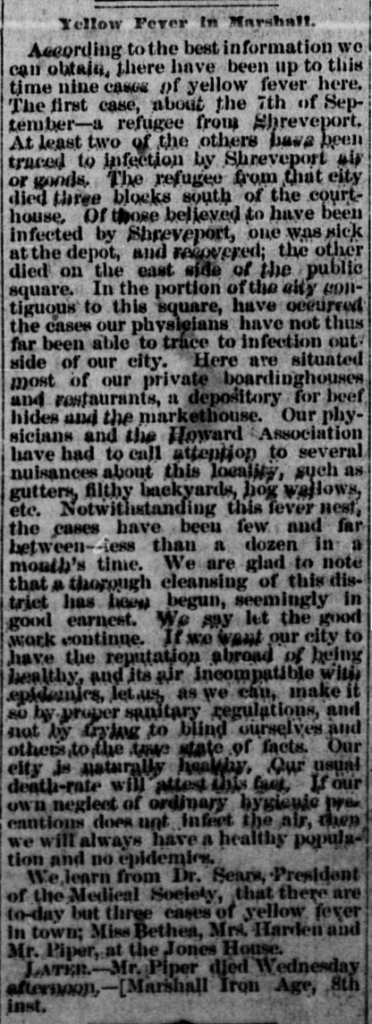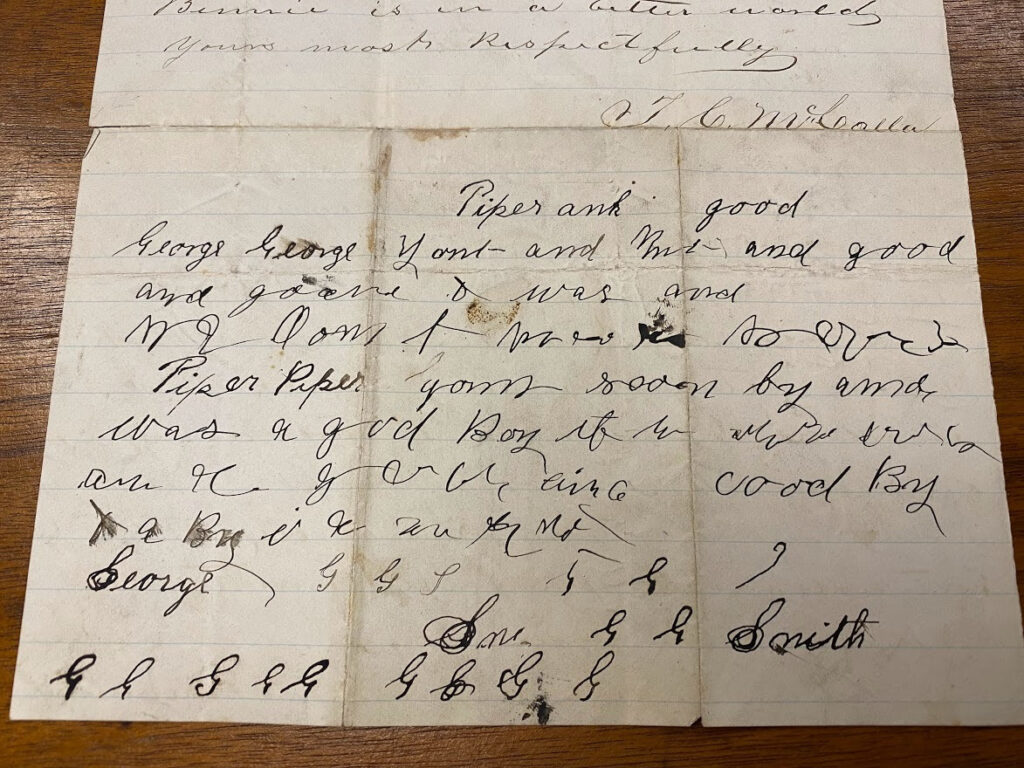I came across this letter last week and want to share it with you. Seldom do so few sentences show us so much about the past. Here is the transcription:
Marshall Tex Oct 29th 1873
Mrs M E Piper
Vermillion, Ohio
My Dear Madam
I am pained to have to impart to you the very sad intelligence of your “dear boy’s” death, as you so affectionately addressed him – He died three weeks ago to day from yellow fever. I was with him almost up to the time when he died – he was not conscious when he died – therefore I could not write to you, for I had forgotten your address – consequently I took your letter from the office so I would know how to address you. He was sober and upright and had numerous friends. He was decently interred in the Marshall cemetery. He died at the “Jones House,” was well nursed. Should you wish to communicate with me – my address will be in Shreveport La – care of J W Bowers – I will take pleasure in giving you and friends any further information. He had first class medical treatment. Do not mourn for him, for I trust your Bennie is in a better world.
Yours most respectfully,
T. C. McCalla

A letter from a stranger was not an uncommon way to receive heartbreaking news in the nineteenth century. People felt a duty to others that’s uncommon in our age, and this man took it upon himself to perform the saddest of duties: to tell a mother she would never see her child again in this life.
The writer, Mr. T. C. McCalla was a traveling shoe salesman. As you can see, penmanship was far more important to him than punctuation.
I can find nothing about young Mr. Piper, other than his mention at the end of the article below about yellow fever in Marshall. It appeared in the October 11, 1873 edition of the Dallas Weekly Herald, reprinted from the Marshall Iron Age of the the 8th.
The article demonstrates much about what our forbears believed about the transmission of the disease. At the time it was thought to be transmitted by foul air. It would be another generation before we was understood that yellow fever was transmitted by mosquitoes.

I can find nothing about Mrs. Piper, mother of the “dear boy,” but the space left empty below Mr. McCalla’s signature reveals something about her.
Spiritualism had taken root in America during the decade prior to the Civil War. Everyday people in their grief sought comfort from mediums and by taking part in seances. Another spiritualist activity was automatic writing, also known as spirit writing.
During a spirit writing session, the person attempting to contact the spirit realm would loosely hold a pen, put their question to the spirits, and wait for the pen to move.
Those of a more scientific bent attributed the movement of the pen not to spirits, but to the subconscious mind, and termed it psychography.
Whatever the source of the movement, what we have here is hard evidence of a mother’s grief and her need to know that her “Bennie is in a better world.”

Categories: Texas Culture, Texas history
